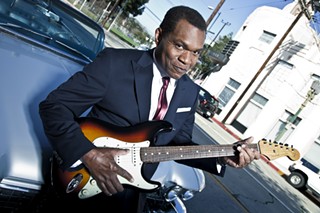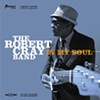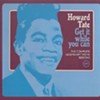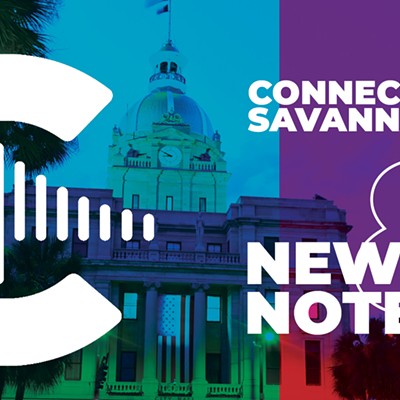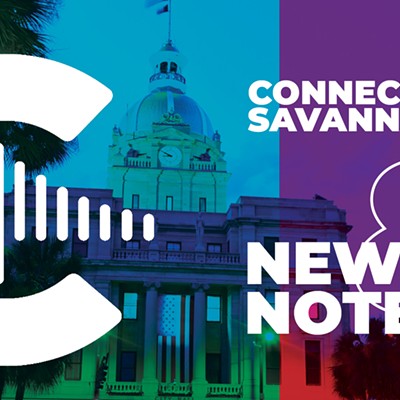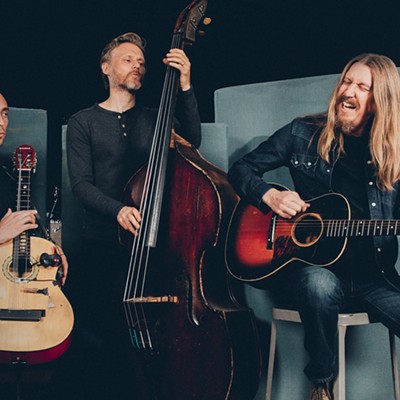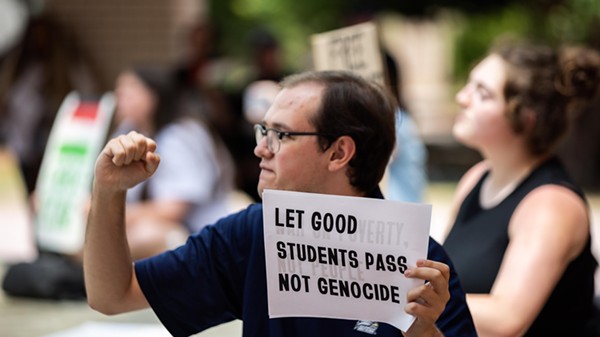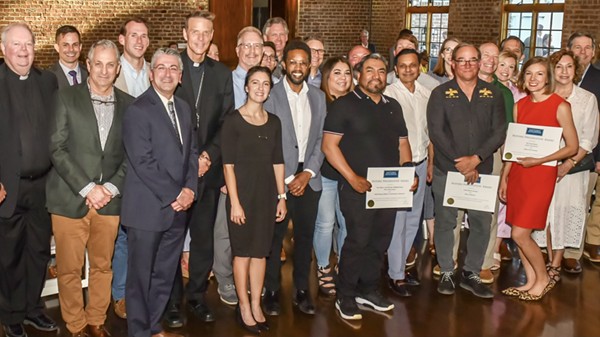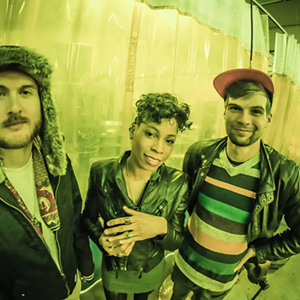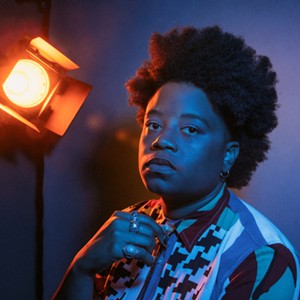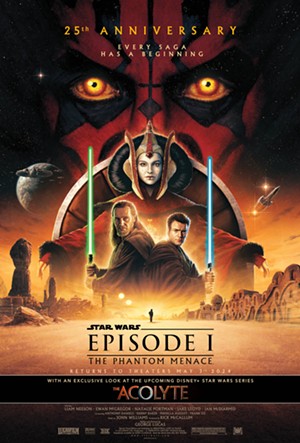THIS WEEK, singer/guitarist Robert Cray releases his 20th album. In My Soul is a super-cool collection of tough and fun electric blues and sweaty soul—from the Otis Redding version of "Nobody's Fault But Mine" to Lou Rawls' "Your Good Thing (Is About to End)" and a swampy instrumental called "Hip Tight Onions," an homage to Booker T. & the MGs. Cray and his skin-tight band also cover "Deep in My Soul," a deeply-felt chiller from blues legend Bobby "Blue" Bland.
There are punchy horns and moaning Hammond B3s on Cray’s homage to the classic Stax/Volt sound, and of course plenty of tasty blues guitar from one of America’s greatest axmen.
What stands out on In My Soul is what an incredible singer Cray is. He’s well-known —justifiably—for his six-string prowess and ability to plow through straight-ahead blues, but this one comes from somewhere deeper inside of him—it’s got blood, sweat, tears and, yes indeed, lots of soul.
A few quick facts: Robert Cray has five Grammy Awards, he’s in the Blues Hall of Fame, and he’s been pals with Eric Clapton for nearly 30 years. He’s a regular performer at Clapton’s annual all-star Crossroads Guitar Festival.
And another thing: Cray, 57, says that watching George Harrison in the Beatles made him want to play guitar in the first place.
Still another: He’s a really funny guy. Read on.
CS: When you were coming up as a young musician, radio wasn't limited to just one "format." Next to the great pop music of the day, a lot of Beatles, you'd hear Motown ...
Robert Cray: Yeah, there was Motown, and the Stax music came along a little bit later in the '60s. Besides that, my parents had music that I was listening to before the Beatles, Ray Charles music, and the Sarah Vaughans, Jackie Wilsons and Sam Cookes, and Bobby Bland. All that music was at home. So that got all mixed up with it too. And when I started playing guitar, because of the Beatles ... we were kids. If a song was good, that's what you liked. It wasn't about whether it was this particular genre, or that or that. And radio did it that way. You just loved it, and that's how I was.
CS: You started on acoustic guitar. Hard to play "Reach Out I'll Be There" on acoustic. Did you gravitate towards rock 'n' roll just because it was easier to play?
Robert Cray: Yeah. Well, I got the acoustic guitar because my mom didn't trust that I was gonna continue with the guitar. So, you know, she played it safe. That lasted a few months until she saw my frustration, and we took the acoustic guitar back and traded it in for an electric. And the amp that goes with it.
CS: So were you learning George's licks off those old records?
Robert Cray: Yeah, I listened to the Beatle records but I also had to take lessons. I took lessons for a little bit too. Outside of that was just hanging out with your friends who also played guitar, in our bedrooms, and teaching one another what the other guy could learn. So if I learned "Little Black Egg," I could show it to the other guy.
CS: You and I are about the same age. What I remember is that guys who took guitar lessons in those days were always trying to play the Ventures. Things that had little relevance to cool music. Did you get that stuff foisted on you?
Robert Cray: My first teacher was teaching me stuff from the John Mayall and the Bluesbreakers record, with Eric Clapton on it. There was one song from that. And another one was a King Curtis tune. But I didn't realize that then. When I heard those songs later, I was like "Wow. I had a pretty cool teacher."
That was short-lived. My dad was in the Army, and we moved from just outside of Tacoma, Washington to Newport News, Virginia, and I was going to sign up for music lessons at another shop. We went and we interviewed with the teacher. He was like “Yep, by the time I get finished with him he’ll be playing ‘Flight of the Bumblebee,’” and he starts riffin’ on “Flight of the Bumblebee.”
So I went for one of the first lessons—and it was “Georgy Girl”! And I said, “That’s it.” That wasn’t me.
CS: When did the hardcore blues guys come into the picture for you?
Robert Cray: After Virginia, we moved back to Washington State. In high school, I joined a band and we played rock and everything else. I had a couple of friends who were listening to B.B. King and Magic Sam. I joined in with them, and that's what we did —we bought all those records that were now in the shops for like $1.50, two bucks. All those United Superior B.B. King records. Howard Tate's Get it While You Can, we bought that with the purple cover 'cause he had the coolest hairdo in the world on there.
We started reading about all these cats. Robert Johnson and his association with the devil, so-called. For 16-year-old kids, that was the coolest thing in the world.
CS: Didn't Albert Collins play your high-school graduation? As legend has it, it was down to him or the rock band Crow.
Robert Cray: In the late '60s, there were rock festivals going on all over the country. I saw Albert at one of those, and he just kicked everybody. We weren't old enough to get into the clubs, but a lot of the kids saw him. The vote was put to our class ... and Albert Collins was there!
CS: You've been doing this quite a while now. Do you still get knock-kneed when you meet famous musicians, or is that long past by now?
Robert Cray: No, it's not past, it's still like that. And especially having done those Crossroads events, you know? When you get the call— "you want to do this?" You get there and you go "Oooh ... OK ...."
Eric’s great. Eric makes you feel comfortable. He’s a great guy, down to earth, and obviously a great player and all that. Through those invitations we do those events, and everybody and their cousin is there. It’s great to see a lot of those players, and just to be a part of it. But you still get intimidated ‘cause there’s always somebody that’s gonna throw steel at you. Never think that you’re too big for your britches!
CS: Tell me about this new record. What's different or not different?
Robert Cray: Well, this record is more R&B flavored than anything we've done for a while. Steve Jordan produced it, and I thought it would be great because we've made some personnel changes, and Steve is a great organizer. Steve's like the fifth member of the band. We're all in the same room recording; Steve'll grab a conga drum or a tambourine or something like that and get us in gear and find our tempo. He'll either dance or play a conga drum; just make everybody feel good. So you forget, basically, where you are.

